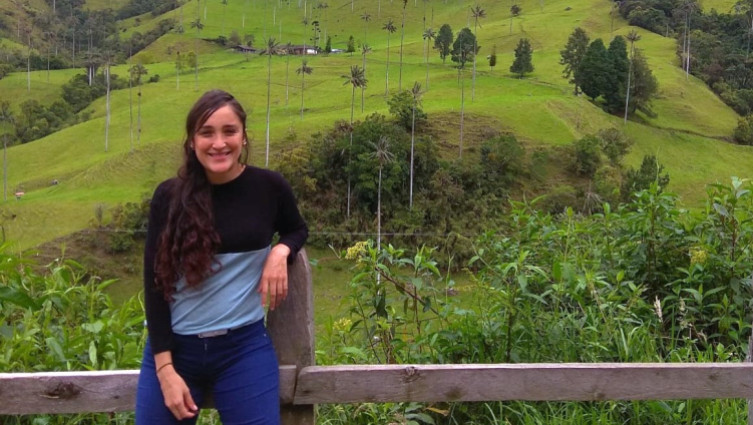New on Board: Monica Duque-Castaño
Tell us a bit about the work you’ll be doing at CCMAR.
I got the FCT fellowship to carry out my Ph.D. project in the Oceanography and Climate Change group at CCMAR and Instituto Português do Mar e da Atmosfera (IPMA). The main goal is to reconstruct spatial and temporal variations in sea surface temperature, paleoproductivity, and biodiversity in the mid-latitudinal North Atlantic during the early Pleistocene (1.5-1.2 million years ago). I'll use stable isotope records and marine microfossils such as planktonic foraminifera to reconstruct these variations. These tiny organisms are crucial because they offer valuable insights into the glacial/interglacial climate and sea surface past circulation over time. I am also interested in evaluating the influence of climatic variations in some extinction events, such as that of the species N. atlantica during the Early Pleistocene.
What were you doing before you joined us?
Before joining CCMAR and IPMA, I worked as a researcher at the Instituto de Investigaciones en Estratigrafía (IIES-Colombia). There, I gained experience using planktonic foraminifera to date rocks and sediments of the colombian Caribbean basins and reconstruct their paleoclimatic history through time. I also supported the creation of the MicroStratiRange software (https://microstratirange-iies.site/), which facilitates the interpretation of biostratigraphic and paleoecological data generated from the study of microfossils.
What do you enjoy doing outside of work?
I am passionate about activities that connect me with the fluidity of movement, such as running, dancing, yoga, and, most importantly, contemplating the sea. I enjoy listening to music at home, especially salsa, colombian cumbia, and Andean music. Eventually, when I have the opportunity, I like to learn about Jungian psychology through the books of the writer Clarissa Pinkola Estés.


